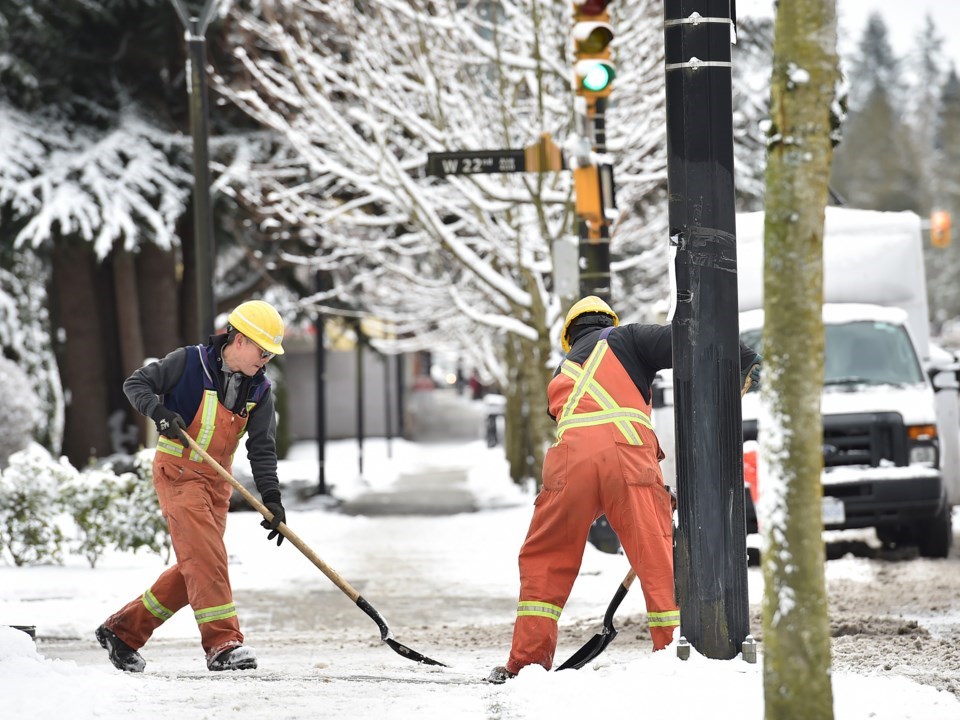The payouts and type of incidents covering the period between January 2016 and December 2020 were released to Glacier Media in response to a request under the Freedom of Information and Protection of Privacy Act (FOIPPA).
The most expensive payout year for the city was in 2019 when it spent $2.9 million. In 2016, the payout was $1.6 million, in 2017 it was $1 million and in 2018 it was $1.6 million. The payouts dropped to $546,432 in 2020.
Incidents included:
• Trip and fall because of sidewalk defect
• Slip and fall on slippery sidewalk
• Police arrest, detainment, bite from a police dog
• Cycling accident
• Park or boulevard tree falling on citizen or house
• Sinkholes, depressions in the road
• Injured while in a civic building
• Motor vehicle accident because of traffic signs, controls
• Injury during sidewalk construction
• Community centre maintenance issues
• Parks maintenance — slip and fall on pathways, playground
• Negligent inspection related to building construction
The FOIPPA document did not break down each case or say when or where it happened, or the extent of injury suffered by the person. All settlements were reached out of court after the person filed a civil claim against the city.
The settlements didn’t necessarily occur in the same year as the court action, with the city’s legal and risk departments saying in an email that litigation typically takes several years to complete and payout amounts are not reflective of increased or decreased litigation activity in a particular year.
“In addition, the total amount paid per year can be subject to significant variation based on a few large settlements,” the city said. “In these circumstances, the city is unable to break down amounts paid based on categories of claims, or explain variations between years without creating a real risk that someone could identify the amount paid in a specific settlement.”
The city said the amounts paid in individual cases are protected by settlement privilege and, in some cases, the release of such information may be subject to confidentiality agreements among the various parties to the litigation.
Both the courts and the Office of the Information and Privacy Commissioner have acknowledged that settlement privilege applies, the city said, quoting a judge in a case involving the City of Richmond and the privacy commissioner.
In that case from 2017, the judge said allowing such information to be disclosed would “discourage third parties from engaging in meaningful settlement negotiations with government institutions.”
Asked about the $7.8 million in payouts, the city described the amount as “relatively low in relation to amounts claimed in lawsuits and in respect of personal injury awards in general, which could be in the millions of dollars for a single case.”
V.I.A. posed several questions to the city about the data received via the Freedom of Information request. The following is a condensed and edited version of the responses from the city.
How are payouts reached normally?
The city negotiates with the plaintiff and/or their legal counsel.
How often does the city get sued? There must be data available that shows an average, and what the top reasons are for launching a suit.
The number of claims commenced against the city in the courts varies significantly each year but is approximately in the range of 70-plus claims. This does not include claims brought in via administrative tribunals such as the Civil Resolutions Tribunal, Human Rights Tribunal, Residential Tenancy Branch, etc. Claimants sue the city primarily for bodily injury arising from a variety of incidents, but there is no commonality other than that they were injured. There is no trend for the cause of the injuries.
Why does Washington State make its out-of-court settlements public and the City of Â鶹´«Ã½Ó³»doesn't?
The city cannot speak to Washington State’s practice. The city does release amounts it pays out in settlements in aggregate but does not release settlement amounts in individual cases. As set out above, disclosure of settlement amounts in individual cases would breach settlement privilege, and, in some cases, the confidentiality agreements reached among the various parties to the litigation. The city cannot unilaterally waive settlement privilege and would also require the consent of the claimant before releasing this information.
What work or solutions are in place to prevent further slips and falls, bicycle accidents, etc?
In general, city staff endeavour to address or mitigate issues we receive via complaint (e.g. via 3-1-1), observation or claim as quickly and as reasonably as we can. The city also has regular inspection and maintenance programs in place for city assets such as streets, sidewalks, trees (park and boulevard), sewers, etc.
Where does the money come from for the payouts? Is that in a separate fund that can be viewed by the public?
Settlement funds are from taxpayers dollars; the city’s financial statements are available to the public.
@Howellings



